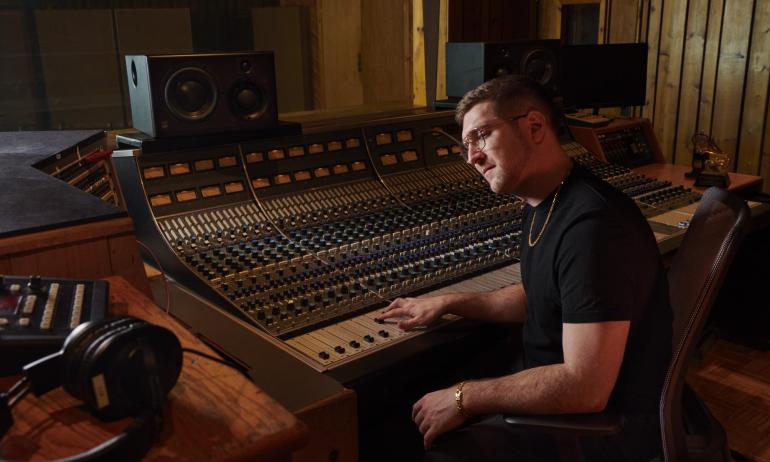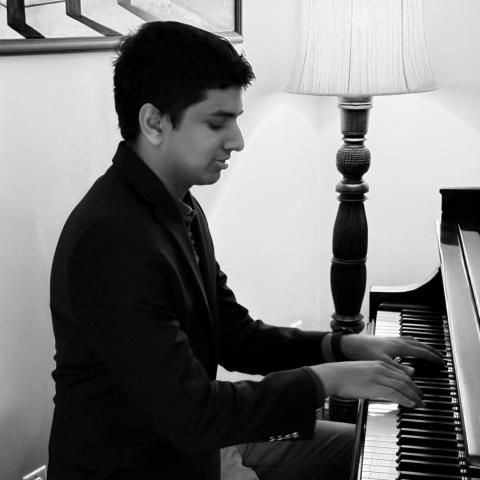A Sonic History of Auto-Tune According to T-Pain

During a recent Visiting Artist Series session, the iconic singer and hitmaker T-Pain talked about how he discovered Auto-Tune, and created a singing-rapping hybrid style that he calls "Hard&B" in order to stand out in the hip-hop scene.
Upon hearing the subtle use of Auto-Tune in Jennifer Lopez's "If You Had My Love," produced by Rodney "Darkchild" Jerkins, T-Pain searched for the vocal tool for two years. In the meantime, he was also deeply influenced by other rappers who brought a more R&B influence into hip-hop, like such artists as Bone Thugs–N–Harmony, OutKast, and songs produced by Teddy Riley, one of the originators of the new jack swing subgenre of hip-hop. He also referenced '80s funk musician Roger Troutman Jr. (of Zapp), who built his vocal sound around the talk-box effect, which allowed him to manipulate his voice through an instrument, such as a guitar or keyboard.
The Auto-Tune effect was created by Antares Audio Technologies and commercially released in 1997, but its main intention was to pitch-correct vocal recordings. Notable exceptions showed up in the pop and electronic music genres with Cher's no. 1 hit "Believe" in 1998 and Mirwais Ahmadzai's "Naïve Song" two years later, both of which pushed Auto-Tune beyond pitch correction and brought a robotic quality to the vocal performance.
T-Pain's obsessive research and work paid off, shooting his career to mega-stardom. The style he developed has since become a dominant sound across genres, and is now heavily used by artists from Kanye West and the Black Eyed Peas to Travis Scott and Lil Uzi Vert.
Take a listen to these genre-defying artists below to hear the sonic DNA that helped T-Pain find his voice, quite literally.




